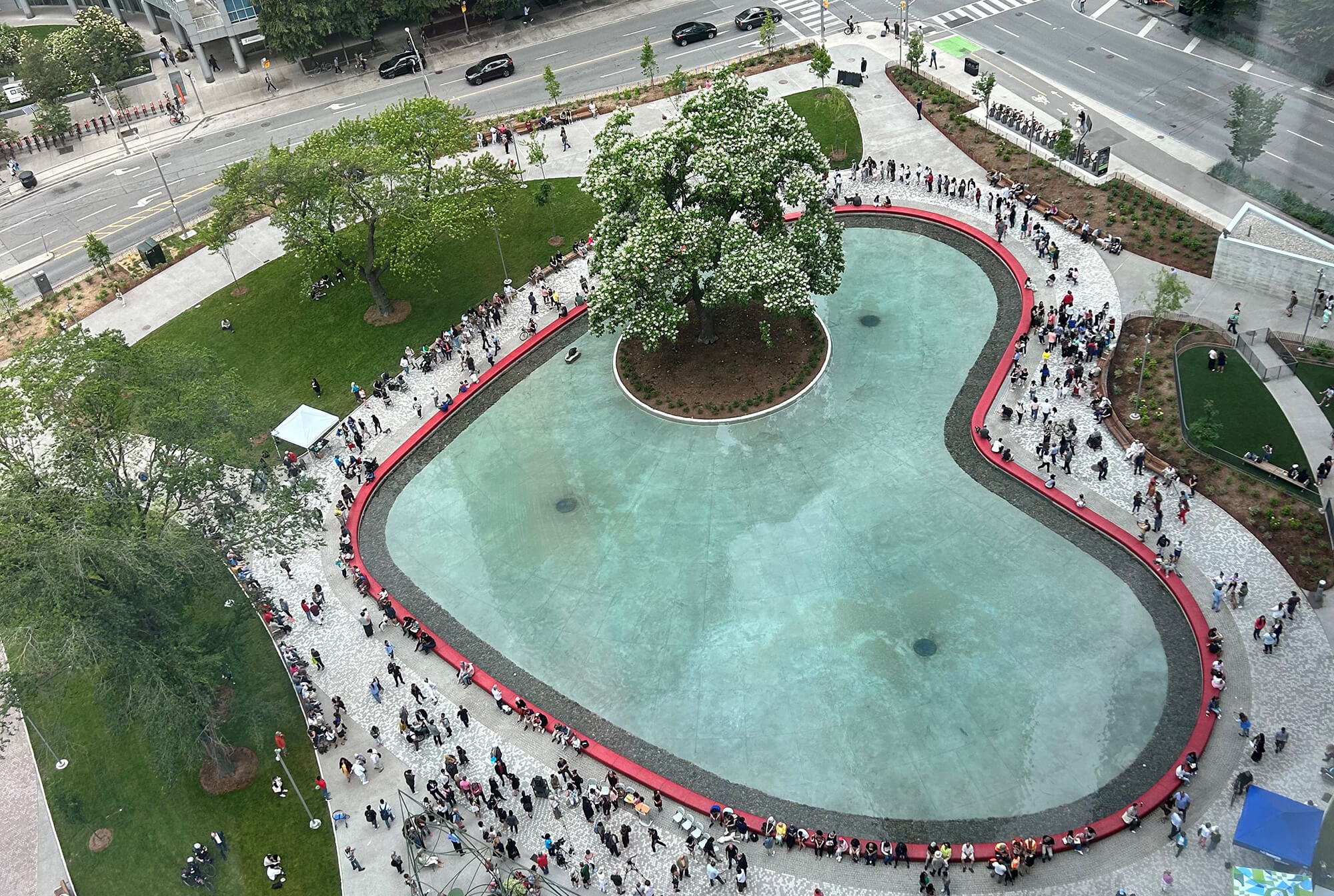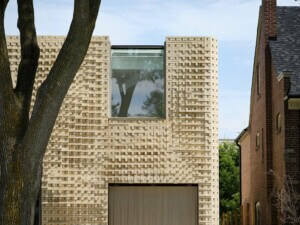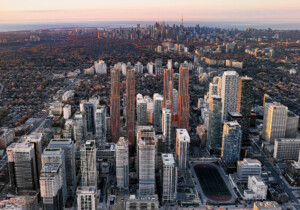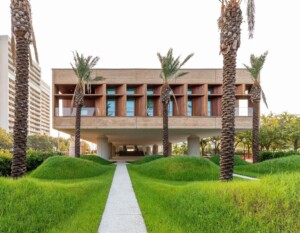On September 15, Canadian landscape architect Claude Cormier died at his home in Montreal at the age of 63 following a cancer diagnosis. The news was shared by The Cultural Landscape Foundation (TCLF) in a tribute for Cormier on their website.
“Landscape architecture has a complicated relationship with history,” said TCLF president and CEO Charles A. Birnbaum. “Some ignore it or are gleefully unaware, while others view it as an unnecessary shackle. Others deploy research-based solutions, which are cognizant of ecological systems (a given), often reverential to the past, and attempting to ‘restore’ what has been lost. Cormier’s approach is entirely different—his work pulverizes the notion that history and design can’t be happily wed and he consistently designs projects that are original, fresh, memorable, painstakingly detailed, and revel in being both highbrow and lowbrow.”
“Day after day, Claude played the roles of mentor, teacher, boss, colleague, friend, and confidant, with a leadership style based on expertise, boldness, rigour, humour, love, and generosity,” Cormier’s office CCxA said in a public statement. “He inspired numerous generations of landscape architects during his career, with local, national, and international reach.”

In 1960, Cormier was born into a working class family in rural Québec. His father, Laurent, was a farmer and his mother, Solange, a teacher. Cormier studied agronomy at Laval University in Québec with the intention of taking over his family’s farm. In 1976, Cormiers father died; altering the course of his education. He completed his undergraduate degree in agronomy at the University of Guelph in 1982 and then finished a bachelor of landscape architecture at the University of Toronto in 1986.
After studying in Canada, Cormier completed a masters degree in the history and theory of design at Harvard GSD. A year of his education in 1994 was financed by Phyllis Lambert in exchange for Cormier’s consulting work on the stewardship of Lamber’s recently completed Canadian Centre for Architecture. At Harvard, Cormier was influenced by the work of Martha Schwartz and Peter Walker. Later he described himself as the “the illegitimate love child” of Schwartz and Frederick Law Olmsted, Sr. In Cambridge, Cormier studied Olmsted for his “broad social vision” and shared affinity for agronomy.
Standing in contrast to what was once a conservative field in Canadian society, Cormier set up his office Claude Cormier + associes in Montreal in 1993 but considered Toronto his “second home.” Cormier’s first commission came that same year with a temporary installation in Bar Le Business, Montreal entitled Enchanted Forest. In 1999, Cormier completed Blue Stick Garden at the inaugural Métis Garden Festival, an ensemble of painted blue sticks inspired by Victorian gardens.

Cormier’s larger built projects came in the early 2000s in the creation of “Montréal and Toronto’s best-loved public squares and urban parks.” With built work in China, Dubai, France, the U.K., and the U.S., Cormier’s best known Canadian projects are Place d’Youville (2002-08); Dorchester Square (2010); and Clock Tower Beach (2012).
Overtime, Cormier became known as a “design ambassador for queer issues.” Cormier built several important cultural projects with LGBTQ2S+ clients and communities. Lipstick Forest (2002); Pink Balls (2011-2016); and 18 Shades of Gay installations (2017-2019) were called expressions of “queer joy” and hallmarks of Cormier’s design identity. Cormier’s last major built works were The Ring, completed in 2022, and Love Park, completed earlier this year. Both were described as “love letters” for Cormier’s two favorite cities: Montreal and Toronto.

In 2017, Cormier was invited to collaborate with Daniel Libeskind on the National Holocaust Memorial in Ottawa. Cormier at first respectfully declined the project because he felt that “he had little to offer.” Libeskind replied to Cormier, saying “I can bring the darkness, you bring the light.” After, Cormier and Libeskind won the competition; the project became a landmark for Claude Cormier + associes. In 2021, a $500,000 Claude Cormier Award in Landscape Architecture was established at the University of Toronto. Claude Cormier + associes became CCxA in 2022 after new partners were promoted at the firm.

Cormier is survived by his mother, Solange, sister Louise, brother Pierre, nieces Marie-Laure, Delphine, and Léa-Sam, and nephew Alexis. A forthcoming documentary Pioneers Oral Histories by TCLF about Canadian landscape design will feature an interview with Cormier taken in August 2023.











